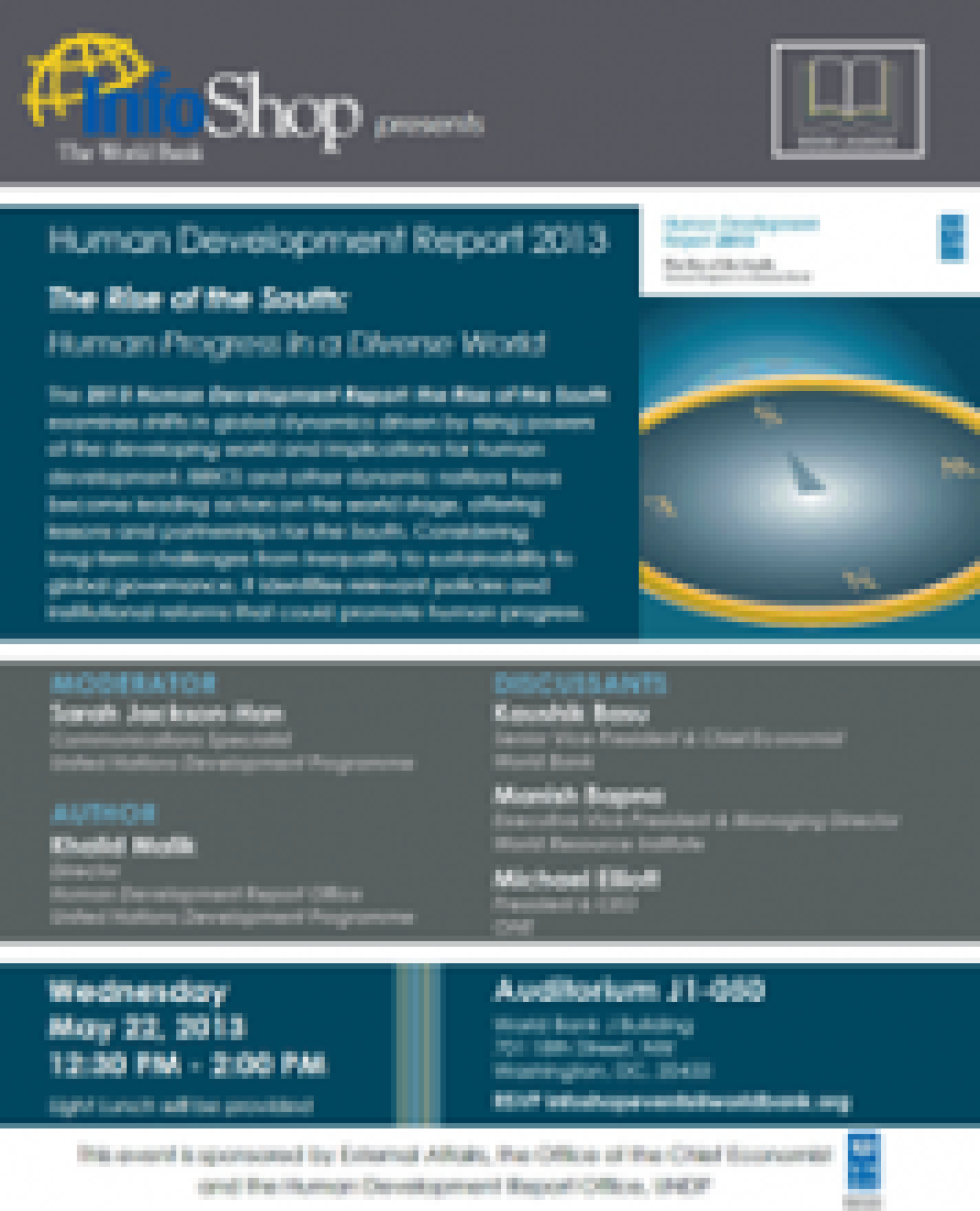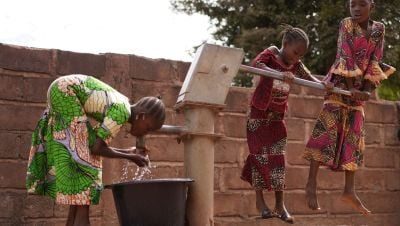“People are the real wealth of a nation.” That sentence opened UNDP’s first Human Development Report (HDR) in 1990, as the Cold War was ending and mobile technology belonged largely in the realm of science fiction. But while the world has changed tremendously over the last 22 years, that statement holds true. It informs and anchors all of UNDP’s work around the world every day. Human development—aimed broadly at expanding freedoms and elevating well-being—has acquired a widespread following since the first Report was launched.
HDRO Director and lead author Khalid Malik presented the main messages of the report at a launch in Washington, hosted by the Chief Economist of the World Bank, Kaushik Basu. Basu responded, while World Resource Institute Executive Vice President and Managing Director Manish Bapna and ONE President and CEO Michael Elliott also commented.
Human development “has changed the global development discussion,” Basu said, noting the vital importance of improved technology and of educating and empowering women as key development drivers.
“The Rise of the South: Human Progress in a Diverse World” identifies more than 40 developing countries with human development gains that significantly outpaced global norms in recent decades, and then looks in greater detail at 18 of those countries, from China to Chile and Ghana.
While these countries differed greatly in their histories, political systems, economic profiles and development priorities, they share some key characteristics. Most were proactive “developmental states” that sought to take strategic advantage of opportunities offered by world trade. They invested heavily in human capital through health and education programs and other essential social services.
The Report argues that ambitious, well-conceived policies centred on people can sustain this human development progress in coming decades and expand it to more developing countries. But it also warns that short-sighted austerity measures, failures to address persistent inequalities, and a lack of opportunities for meaningful civic participation could threaten this progress unless leaders take bold corrective action.
Accelerating growth and social change in the leading developing countries is profoundly transforming global power dynamics. But fully grasping the scale and speed of this tectonic shift—or its ultimate implications—is a challenge. While the Industrial Revolution directly affected about 100 million people in North America and Western Europe, this 21st century revolution is changing the lives of billions of people in all parts of the world.
By 2030, the 2013 Report projects, there will be nearly 5 billion people in the emerging new “global middle class,” including some 4 billion in today’s developing countries. Despite lower average incomes than their Northern middle-class counterparts, they increasingly have comparable educations and health standards and—equally important—unprecedented Internet-enabled access to worldwide sources of information and ideas. How this new global middle class lives and the choices it makes “will determine the fate of the planet,” Bapna said.
An increasingly active and engaged civil society, as Michael Elliott observed, will likely ensure sensible policy and demand greater accountability from government at all levels, local and national—while citizens expect much more from international institutions, including fairer representation.
A greater voice for the South in these global institutions is in everyone’s ultimate interest, especially in the fight against hunger, disease, and environmental hazards. A bigger say in global governance implies greater responsibility, with shared accountability for solving problems and sustaining human development progress worldwide. “A more multi-polar world also needs to be a more multilateral world,” Bapna said.
Writing in the 2013 HDR, Nobel laureate Amartya Sen noted that his late collaborator Mahbub ul Haq had through his work on human development pioneered an approach to “assessing the richness of human lives...human well-being and freedom, and their connection with fairness and justice in the world.
Building on that work and expanding human development gains, particularly in fragile and conflict-affected states, is the challenge that lies ahead. Daunting, but as this year’s Report shows, smart policies and wise investments can lay the groundwork for unimaginable progress.
The HDialogue blog is a platform for debate and discussion. Posts reflect the views of respective authors in their individual capacities and not the views of UNDP/HDRO.


